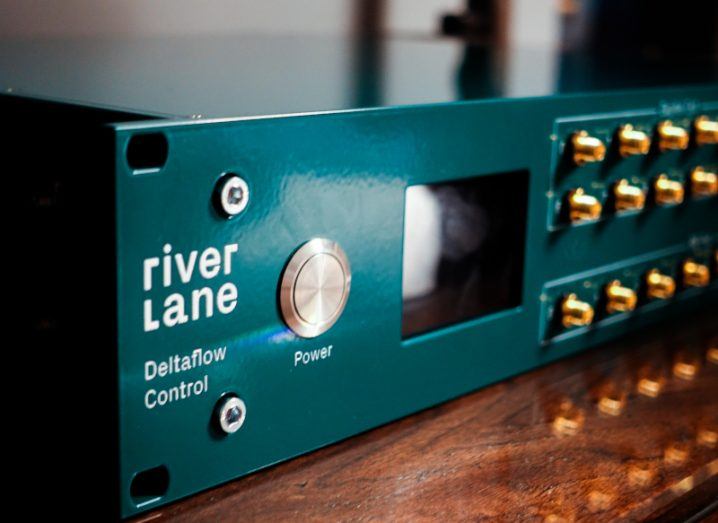
Riverlane, a company specializing in quantum engineering, declared that it has secured £15 million in a Series B funding round. Molten Ventures led the round, and it also received investments from Altair, a leader in simulation, high-performance computing (HPC), and artificial intelligence, as well as returning investors Cambridge Innovation Capital (CIC), Amadeus Capital Partners, and the National Security Strategic Investment Fund (NSSIF). James R. Scapa, CEO and founder of Altair, will join the board of Riverlane.
Riverlane’s enterprise valuation has significantly increased due to the new investment, which is anticipated to carry the company until it reaches cash flow break-even. The extra funds will be utilized to expedite the development of Deltaflow.OS, Riverlane’s operating system for error-corrected quantum computing.
Error correction is the principal technical hurdle for quantum computing to realize its full transformative potential by scaling up and enhancing reliability. Riverlane is already collaborating with top quantum hardware firms, academic labs, and governmental agencies to construct and execute Deltaflow.OS for various qubit types.
According to the Boston Consulting Group (August 2022), the quantum computing industry is expected to generate economic value of up to $850 billion in the next 15-30 years. However, to revolutionize fields such as drug design, material science, aerospace, and climate change, quantum computers must reliably perform a trillion high-speed operations without disruption.
Despite the progress made, today’s quantum computers can only perform a limited number of quantum operations, typically a few hundred, before failing due to the high error rate caused by the fragility of all qubit types. To increase their usefulness, it is crucial to identify a way to detect, diagnose, and correct quantum errors as they arise, enabling scaling from several hundred error-free quantum operations (QuOps) to a trillion (TeraQuOps), which is the number of operations necessary to execute most known quantum algorithms.
Riverlane’s founder and CEO, Steve Brierley, believes that solving quantum error correction, one of the significant scientific challenges of our time, will enable quantum computers to accurately simulate the true complexity of nature. This breakthrough will usher in the Quantum Age, where the use of quantum computers will replace the slow trial-and-error approach with rapid design to tackle complex problems. Brierley is optimistic about the countless ways this technology will positively transform the world.
To address these challenges, the company is partnering with some of the world’s most prominent academic labs, such as the University of Wisconsin, Duke University, University of Oxford, and University of Innsbruck, as well as more than a third of the world’s quantum hardware companies, including Infleqtion (formerly Cold Quanta), Qolab, Quera, Seec, Rigetti, and Universal Quantum.
Riverlane has partnered with industry leaders like AstraZeneca, Merck, Astex, Rolls Royce, and Johnson Matthey to gain a better understanding of the transformative applications of error-corrected quantum computers in various industries.
The Riverlane team has more than doubled in the past year to 100 engineers and scientists, with offices in Cambridge, UK, Boston, and San Francisco.
According to a spokesperson from the British Business Bank, the National Security Strategic Investment Fund (NSSIF) is a joint initiative with HM Government and serves as the government’s corporate venturing arm for dual-use advanced technologies. NSSIF invests in long-term equity to accelerate the adoption of HMG’s future national security and defence capabilities and to develop the UK’s dual-use technology ecosystem. The investment in Riverlane recognizes the company’s position as part of the UK’s world-leading quantum technology sector.
Stuart Chapman, Molten Ventures’ Chief Portfolio Officer, commented that “Riverlane’s exceptional progress in quantum computing, particularly in quantum error correction, has led to a significant increase in its valuation despite a challenging technology market. With the development of Deltaflow.OS, Steve and the Riverlane team are poised to bring quantum computing to the commercial world. We are excited to renew our support and have never been more confident in Riverlane’s ability to drive quantum innovation and create long-term value.”
Meanwhile, Amelia Armour, Partner at Amadeus Capital Partners, remarked that “from the beginning, Amadeus Capital Partners has recognized Riverlane as a company with the technical expertise and long-term strategy to tackle the most difficult challenges in quantum computing. We are delighted to continue our support for Riverlane, assisting the company in achieving its vision of designing and engineering the complex chips required to control and simultaneously decode the errors produced by every quantum computer’s qubits. As the company expands its business and technology, we look forward to participating in Riverlane’s continued growth and future success.”
According to James R. Scapa, founder and CEO of Altair, “Riverlane’s revolutionary technology offers a crucial unified software platform that incorporates error correction across all quantum hardware architectures, enabling the acceleration and expansion of quantum computing’s impact.” “Altair has a long track record of developing and investing in HPC technologies. Partnering with Riverlane allows Altair to remain at the forefront of transformative technologies, assisting our customers in expediting their innovation,” he added.
About Riverlane
Riverlane aims to accelerate the usefulness of quantum computing beyond previous expectations. The realization of the enormous potential of quantum computing requires a significant increase in the size and dependability of quantum computers. To tackle this challenge, Riverlane is developing Deltaflow.OS, a quantum computer operating system that creates dependable logical qubits from numerous unstable physical qubits, facilitating the development of reliable applications. This commences with research and development in collaboration with quantum hardware manufacturers, businesses utilizing quantum computers to solve practical problems, and academic institutions. Molten Ventures, Cambridge Innovation Capital, Amadeus Capital Partners, and the University of Cambridge provide Riverlane with venture capital funding.



